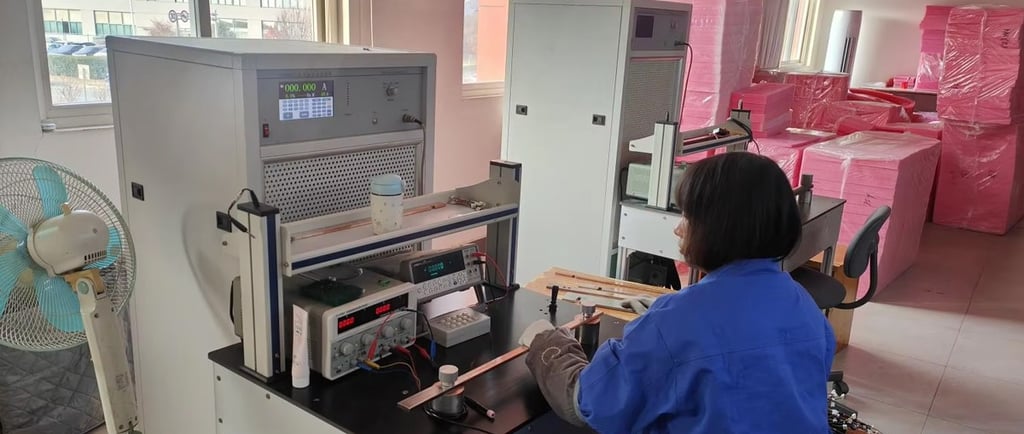Are All Hall Effect Sensors the Same?
Explore the different types of Hall Effect sensors, their features, and how to select the best one for your application. Learn about their sensitivity, accuracy, and real-world uses across industries like automotive, electronics, and industrial automation.
Azael
3/19/20192 min read


Are All Hall Effect Sensors the Same?
Hall Effect sensors are widely recognized for their ability to detect magnetic fields and convert them into electronic signals. They are essential in applications ranging from automotive systems to consumer electronics. But are all Hall Effect sensors the same? The short answer is no. This article delves into the differences among Hall Effect sensors and how to choose the right one for your needs.
Introduction: What Are Hall Effect Sensors?
Hall Effect sensors operate on the principle discovered by Edwin Hall in 1879, which describes how a magnetic field perpendicular to an electric current generates a voltage. These sensors detect magnetic fields and are used for measuring position, speed, and current. Their reliability, contactless operation, and versatility make them invaluable across industries like automotive, industrial automation, and medical devices.
Types of Hall Effect Sensors
Linear vs. Digital Sensors
Linear Hall Sensors: Output an analog signal proportional to the strength of the magnetic field. Ideal for precise measurements in applications like current sensing or position tracking.
Digital Hall Sensors: Provide a binary output, indicating the presence or absence of a magnetic field. Commonly used in switches and proximity detection.
Unipolar vs. Bipolar Sensors
Unipolar Sensors: Triggered by a magnetic field of a specific polarity (north or south). Often used in applications where consistent polarity is expected.
Bipolar Sensors: Triggered by both north and south polarities. Suitable for applications requiring bidirectional magnetic field detection.
Latch-Type Sensors
Latch sensors remain in their triggered state until a reverse magnetic field resets them. These are often used in rotating systems like motor speed detection.
Factors That Differentiate Hall Effect Sensors
Sensitivity
Sensors designed for low magnetic fields are used in consumer electronics.
High-sensitivity sensors are critical for detecting weak fields in medical or scientific instruments.
Accuracy
Linear sensors offer greater precision compared to digital types, making them suitable for measuring minute variations in magnetic fields.Packaging
Hall sensors come in various forms, such as surface-mount devices for compact electronics or robust packages for industrial use.Power Consumption
Low-power Hall sensors are ideal for battery-powered devices, while higher power models are used in industrial settings.Environmental Resilience
Sensors designed for extreme temperatures, moisture, or vibration are essential for automotive and outdoor applications.
Applications and Suitability
Medical Devices
Consumer Electronics
Industrial Automation
Automotive
Non-contact switches in surgical tools.
Precise current sensing in diagnostic equipment.
Detecting lid positions in laptops.
Magnetic switches in smartphones and wearables.
Position tracking in robotic arms.
Current sensing in motor controllers.
Crankshaft and camshaft position detection.
ABS and steering angle sensors.
Technological Advancements in Hall Effect Sensors
IoT Integration
Sensors with wireless communication capabilities are becoming part of IoT systems, allowing real-time monitoring and data collection.Advanced Magnetic Detection
Innovations like 3D Hall sensors can detect magnetic fields in multiple dimensions, enhancing their accuracy and versatility.Miniaturization
Smaller sensors with enhanced sensitivity are expanding their use in compact and portable devices.
Not all Hall Effect sensors are the same. Differences in sensitivity, accuracy, design, and application make it essential to select the right sensor for your needs. Whether you're developing an electric vehicle, designing a smart appliance, or building industrial machinery, understanding these distinctions will help you choose the best solution.
Actionable Advice:
If you're unsure which Hall Effect sensor suits your project, consult with an expert or explore product catalogs from leading manufacturers to find the perfect match.
By choosing the right sensor, you can enhance the efficiency, safety, and performance of your application.
Related Blogs
Sensors
Quality hall effect sensors for various applications.
Wholesale
Customization
azael@halleffectpro.com
+86-15205190013
© 2012-2024. All rights reserved.
